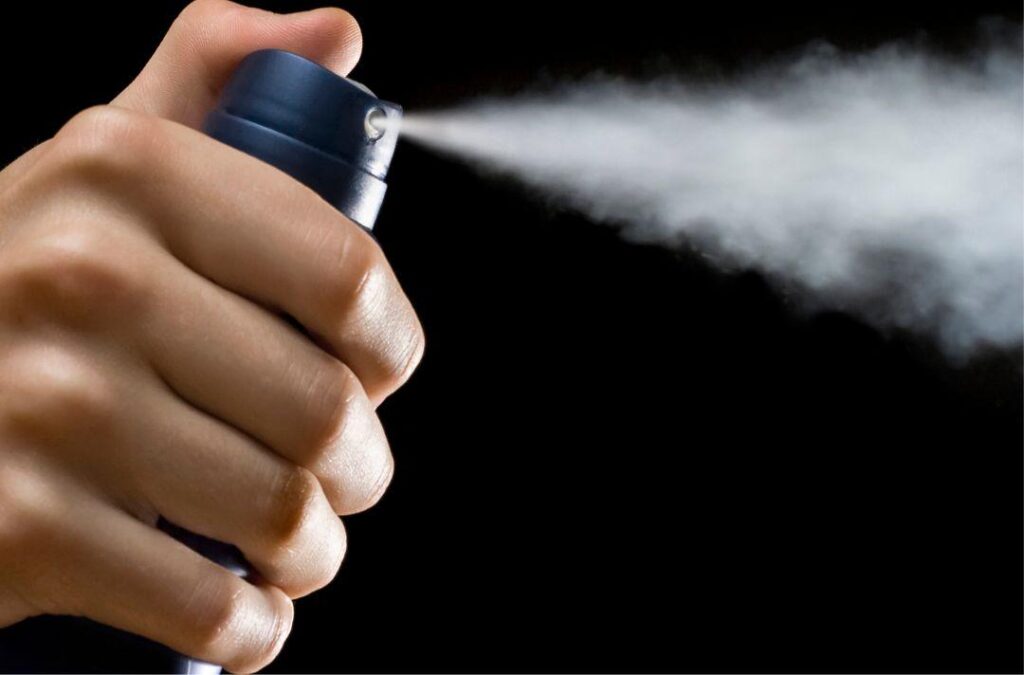Table of Contents
- Legal Overview of Pepper Spray Regulations in Washington D.C.
- Permissible Uses and Restrictions to Keep in Mind
- How to Purchase and Carry Pepper Spray Legally
- Best Practices for Safe and Responsible Use
- Final Thoughts
Legal Overview of Pepper Spray Regulations in Washington D.C
In Washington D.C., the possession and use of pepper spray are regulated to ensure public safety while allowing self-defense options. Legally, individuals must be at least 18 years old to purchase or carry pepper spray, and it must be used strictly for protection purposes. Unlike some jurisdictions, D.C. does not require registration of pepper spray; however, there are important restrictions on the quantity and concentration allowed. Consumers should verify that their product complies with local standards to avoid legal repercussions.
Additionally, the law mandates that pepper spray cannot be used offensively or carried in certain sensitive places, such as federal buildings, schools, and public transportation systems. Violations can lead to criminal charges, including fines or imprisonment. Key considerations include:
- Age limit: Must be 18 or older to purchase or possess.
- Permitted use: Solely for self-defense, no aggressive deployment.
- Restricted areas: Federal property, schools, and public transit.
- Product standards: Approved concentration and quantity limits.
Permissible Uses and Restrictions to Keep in Mind
When carrying pepper spray in Washington D.C., it’s essential to understand that its use is strictly regulated to ensure public safety. The spray should be used solely for self-defense purposes and not as a tool for aggression or intimidation. Misusing pepper spray, such as deploying it during a non-threatening encounter or in a public space without provocation, can lead to legal consequences including fines or criminal charges. Additionally, individuals must ensure their pepper spray complies with the permissible size and formulation requirements mandated by local law to avoid penalties.
There are certain restrictions that pepper spray owners must keep in mind to stay within the bounds of the law. The spray cannot be possessed by persons under 18, or individuals with certain criminal histories. It is also prohibited to carry pepper spray on school grounds or government buildings unless explicitly authorized. Furthermore, transporting pepper spray across state lines may invoke different laws, so users should research relevant regulations when traveling. Below is a quick checklist to help ensure compliance:
- Age restriction: Must be 18 or older to purchase/use
- Approved size: Typically under 2 ounces for civilian use
- Intended use: Only for self-defense against imminent threats
- Prohibited areas: Schools, certain public events, and government facilities
- Legal transport: Follow specific rules when crossing jurisdictions
How to Purchase and Carry Pepper Spray Legally
Before you buy pepper spray in Washington D.C., it’s essential to understand the legal parameters to ensure compliance. Residents must be at least 18 years old to purchase pepper spray, and the product must be intended for self-defense purposes only. It’s advisable to acquire a spray that is approved by recognized agencies such as the U.S. Environmental Protection Agency (EPA) or equivalent, as certain chemical formulations may be restricted. Additionally, pepper spray containers should not exceed the allowed size limit, typically less than 2 ounces, to remain lawful for possession within city limits.
When carrying pepper spray, it should remain easily accessible but discreet, for instance, attached to a keychain or stored in a handbag. Keep in mind the following guidelines to stay compliant:
- Do not carry pepper spray into federal buildings or public transportation facilities.
- Never use pepper spray for any purpose other than legitimate self-defense.
- Avoid transporting pepper spray across state lines without checking local laws.
- Refrain from involving minors in the possession or use of pepper spray.
Best Practices for Safe and Responsible Use
When carrying pepper spray in Washington D.C., always prioritize safety-not only for yourself but also for those around you. Keep your spray accessible yet secure, ideally in a holstered position or a dedicated pocket where you can quickly retrieve it without fumbling. Regularly inspect the expiration date and ensure the nozzle is clear and functional. Understanding the spray’s effective range and practicing aiming at a target can significantly increase your confidence and efficiency in an emergency, reducing the risk of accidental exposure.
Using pepper spray responsibly involves more than just readiness-it means using it strictly as a tool of self-defense. Never deploy it as a prank, threat, or against someone who is not posing an immediate danger. After use, contact local authorities promptly and provide a clear account of the incident. Remember to respect privacy laws regarding recording or sharing footage involving pepper spray deployment, to avoid further legal complications. Following these guidelines ensures you respect both your personal safety and legal boundaries in the district.
- Store pepper spray in a cool, dry place to maintain potency.
- Take a self-defense course to understand appropriate use.
- Notify family or trusted persons if you carry pepper spray regularly.
- Familiarize yourself with local law enforcement’s stance on pepper spray use.
Final Thoughts
Navigating the legal landscape surrounding pepper spray in Washington D.C. is essential for anyone considering it as a means of self-defense. By understanding the specific regulations, restrictions, and responsible usage practices outlined in this guide, you can ensure that you protect yourself within the boundaries of the law. Stay informed, stay safe, and always prioritize legal compliance to make the most of your personal safety tools in the nation’s capital.Check Our Other Blogs
- StunGun – Your Trusted Source for Stun Guns, Laws, and Self-Defense Tips
- PepperSprayLaws – Your Trusted Resource for Pepper Spray Information
- StunGunLaws – Your Trusted Guide to Stun Gun Legality and Safety




